At the 2024 edition of the Joseph Joachim Violin Competition, Charlotte Gardner was treated to a masterclass in how a music contest can give its candidates a wholly positive experience
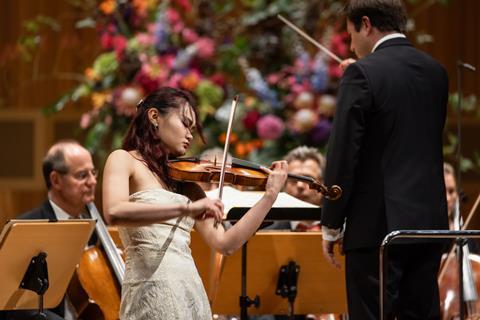
Discover more Featured Stories like this in The Strad Playing Hub.
Read more premium content for subscribers here
Decisions made with humanity and artistry, in an environment clearly aimed at helping all candidates grow: it’s not every competition that can be summed up in this way, but this was exactly how it felt at the 2024 edition of the triennial Joseph Joachim Violin Competition (JJVC) last September – the second under the joint artistic directorship of violinists Antje Weithaas and Oliver Wille.
Twenty-one violinists aged 16 to 31 came to Hanover, from eight different countries. Soprano Juliane Banse chaired a jury comprising violinists Lorenza Borrani, Ning Feng, Liza Ferschtman, András Keller, Gidon Kremer and Kathrin Rabus, violist Kim Kashkashian, pianist and conductor Alexander Lonquich and Hanover State Opera general director Stephan Zilias. Prizes included the top €30,000 Joseph Joachim Prize and €10,000 each for all three finalists; plus special awards including a debut recording with Warner Classics, the three-year loan of a 1765 Guadagnini violin from the Fritz Behrens Foundation, a €2,000 voucher for sheet music from the publisher G. Henle, and a total of 31 concerto and recital concert engagements.
Equally notable was the veritable Everest of musical skillsets and the repertoire that candidates were required to play. There was a solo violin preliminary round where the set repertoire included Bach and 20th- and 21st-century pieces. The two semi-final rounds (22–25 September) involved playing–directing Mozart and Bartók with the Munich Chamber Orchestra; then playing first violin with the Kuss Quartet in a Haydn string quartet movement within an otherwise free-choice recital. The rounds took place in the Richard Jakoby Saal at the Hanover Academy of Music, Drama and Media before the finals at the NDR Konzerthaus’s Grosser Sendesaal on 28 September. These comprised a seven-minute commissioned work for solo violin by Enno Poppe, immediately followed by a concerto – a choice of Beethoven, Brahms, Dvořák, Mendelssohn or Schumann – with the NDR Radiophilharmonie under Stephan Zilias.
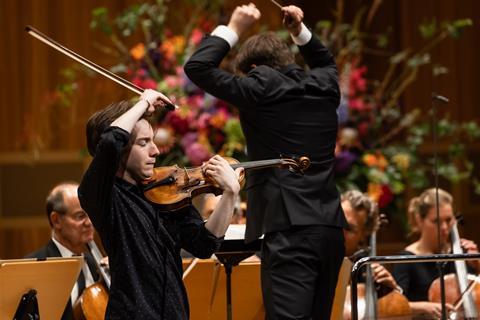
When I caught up with Weithaas and Wille, they acknowledged the challenge they had set, but also its necessity in terms of allowing them to identify a complete musician with the skillset to thrive in today’s musical environment. ‘We want to find someone who has a special voice, capable of playing with and influencing others, and giving a very personal lead,’ explained Wille. ‘We want musicians who honour the score,’ said Weithaas, ‘but who also take us into another world with their playing – they need to have an aura.’ The free-choice recital was very much about identifying personalities – although Weithaas sensed that some participants were still trying to second-guess what they thought a competition jury expected. ‘Don’t!’ she said. ‘If you like contemporary music, play it. Play only Baroque music if you want. Show us your strengths, your musical aims.’
Weithaas and Wille were supportively present and determinedly hands-off throughout the competition. Having taken up their roles after a 2018 edition marred by rumours that their predecessor was attempting to influence the jury in favour of his own pupil, they made the decision to choose jurors who share their own values, then step back. ‘Everyone on the jury is a great artist,’ Weithaas said, ‘and when you have to make what seem like impossible decisions, this is exactly what we wanted.’
There was a strong sense that the jury wanted all the candidates to get a positive experience from taking part in the competition. I arrived just in time to hear Banse name the finalists. ‘There is no objectivity in music,’ she said, ‘but we all agreed to judge, and give a score, even if it seems absurd.’ The chosen three were South Korean Kyumin Park, aged 27, Angela Chan, also 27, from Hong Kong and Canadian Jacques Forestier, 19.
‘What I learnt was, I can do it! this gives me new confidence in myself’ – Alexandra Weissbecker, semi-finalist
Those who didn’t progress were offered instant feedback. ‘It was a very humane interchange,’ Kashkashian told me later. ‘I think they all felt that they had been taken seriously, and that we had really heard them.’ Semi-finalist Alexandra Weissbecker, 23 – who performed in one of several competition-linked recitals around Lower Saxony the evening after the announcement of the finalists – certainly agreed with this statement. ‘I got a lot of feedback, and I will definitely work on those things,’ she said. ‘But in general, what I learnt was that I can do it! While I was preparing, I wondered whether it was even possible to make it through all these different challenges and stay alive! So this gives me new confidence in myself.’
On the night of the final, Poppe’s competition commission, Feder (‘Feather’), cast the violin’s four strings as contrasting personalities in a faintly ghostly conversation, their different characters created by intricately detailed markings denoting vibrato type as well as bow pressure, speed and contact point. Chan’s interpretation stood out as having the most sharply delineated characterisation, architecture and overall drama.
In the concertos, Park brought control and some lovely legato sweetness to the Beethoven, albeit with a slightly narrow range of colour and drama. Chan’s crisply articulated Brahms was supremely accomplished, with a perfect balance of power and sweetness, and technically superb. She displayed a beautiful long bow in the central movement. ‘I was so nervous,’ she said afterwards, not least because Brahms is a composer she is only just beginning to understand. ‘But when I heard the NDR orchestra I just thought, “OK, you need to enjoy this moment; it sounds incredible!”’
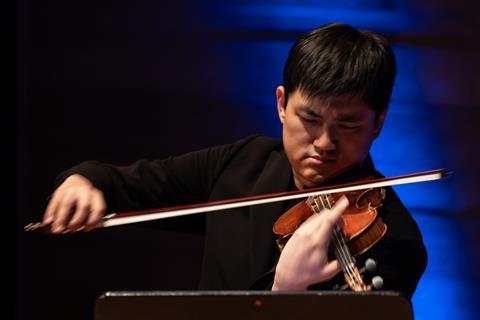
The wide, sparkling, melodically Czech-flavoured luminosity that the orchestra brought to Forestier’s Dvořák represented probably the greatest orchestral partnering I’ve ever heard at a competition. And while Forestier’s playing wasn’t always as polished and assured as Chan’s (it felt at times as though he needed a better instrument), there was something different in the air. He had the concerto’s dance both under his fingers and at a deeper level. He held the room. And his fun-filled dynamic with the orchestra was a joy to watch.
So here was a conundrum. From a traditional competition standpoint, Chan was technically the ‘best’ violinist. Yet the much less experienced Canadian teenager was an attention-grabber with great potential. The jury’s announcement came late, and with a surprise: describing the difficulty of ‘comparing apples with pears’, Banse named Chan and Forestier joint winners of the Joseph Joachim Prize; they equally shared the top prize money. The Guadagnini and the Warner recording went to Forestier; Chan received the €5,000 prize for her interpretation of the Poppe commission; and Park took the Henle award.
Forestier afterwards was understandably ecstatic – but not just about winning. ‘A highlight for me was collaborating with Boris Kusnezow,’ he said. ‘Working with a such a flexible and inspiring pianist brought out the best in my own playing, We really clicked, and now one of my prizes is to play a concert with him again in 2025. I’m equally excited about the number of engagements with orchestra. This is where I currently lack experience so I can’t wait to seize that opportunity.’
I’ll certainly be watching him, and the other finalists, with interest.
Read: Postcard from Brussels: 2024 Queen Elisabeth Competition
Read: Joint first prize awarded at the 2024 Joseph Joachim Violin Competition
Discover more Featured Stories like this in The Strad Playing Hub.
Read more premium content for subscribers here
The number one source for playing and teaching books, guides, CDs, calendars and back issues of the magazine.
In The Best of Technique you’ll discover the top playing tips of the world’s leading string players and teachers. It’s packed full of exercises for students, plus examples from the standard repertoire to show you how to integrate the technique into your playing.
The Strad’s Masterclass series brings together the finest string players with some of the greatest string works ever written. Always one of our most popular sections, Masterclass has been an invaluable aid to aspiring soloists, chamber musicians and string teachers since the 1990s.
The Canada Council of the Arts’ Musical Instrument Bank is 40 years old in 2025. This year’s calendar celebrates some its treasures, including four instruments by Antonio Stradivari and priceless works by Montagnana, Gagliano, Pressenda and David Tecchler.

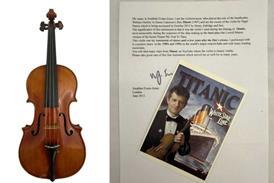

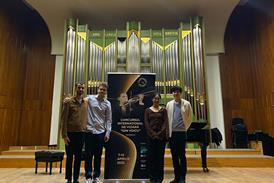
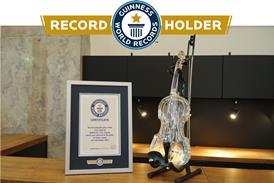

































No comments yet